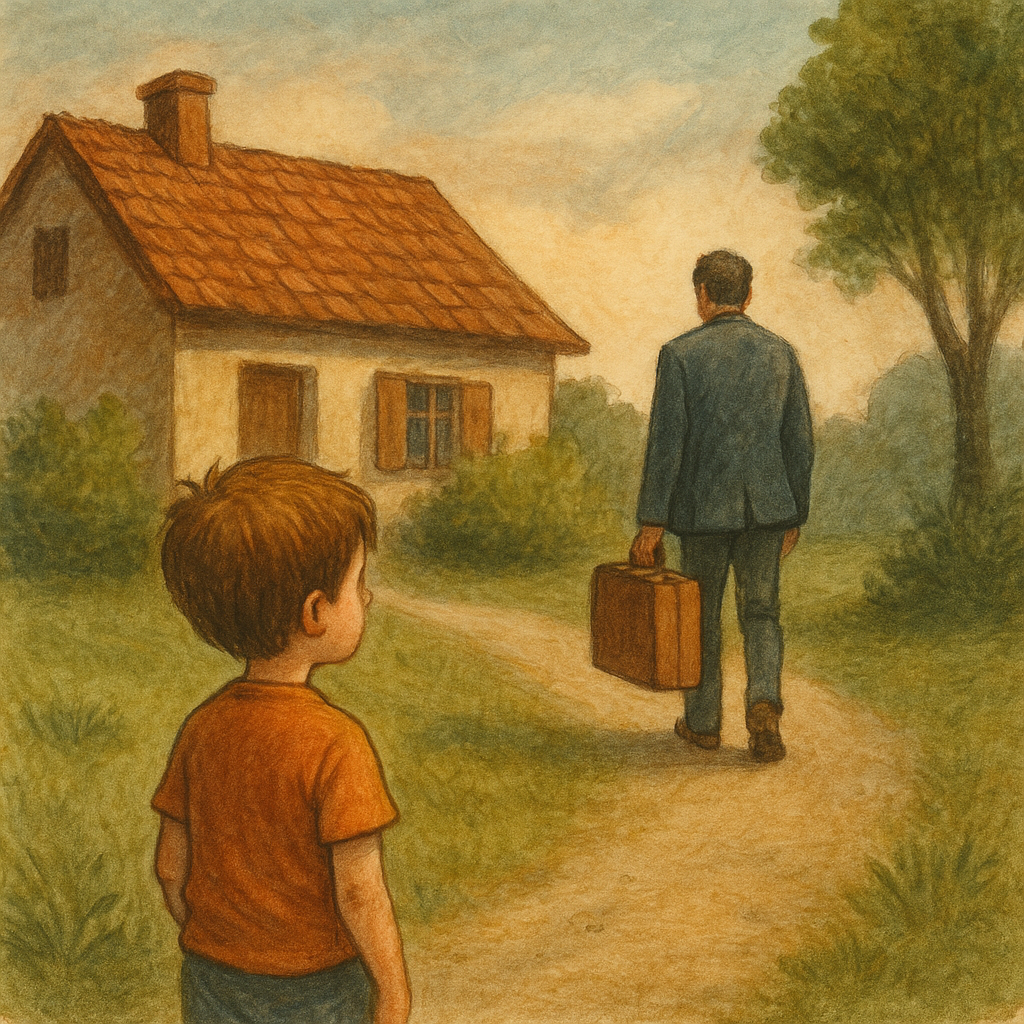
Once upon a time there was a boy who lived happily in a small house not far from the forest. His name was Giovanni. He loved sunny days, the sound of his mother's voice calling him for dinner, and the strong hands of his father lifting him into the air, making him fly and laugh.
One day, however, he saw his father leave the house with a suitcase in hand and tears in his eyes.
He said nothing. He looked at him with all the tenderness he had in his heart. But he didn’t have the courage to hug him. Maybe because he was too little. Or maybe because he already understood that it wasn’t an ordinary goodbye.
From that day on, Giovanni never saw his father again.
When he asked about him, the answers were always the same: “Your dad is far away.” “Your dad is not coming back.”
But Giovanni never stopped thinking about him. At night, especially when the sky lit up with lightning and thunder rumbled through the house, he would hold his pillow tightly and wonder: Where are you, dad? Why aren’t you here with me?
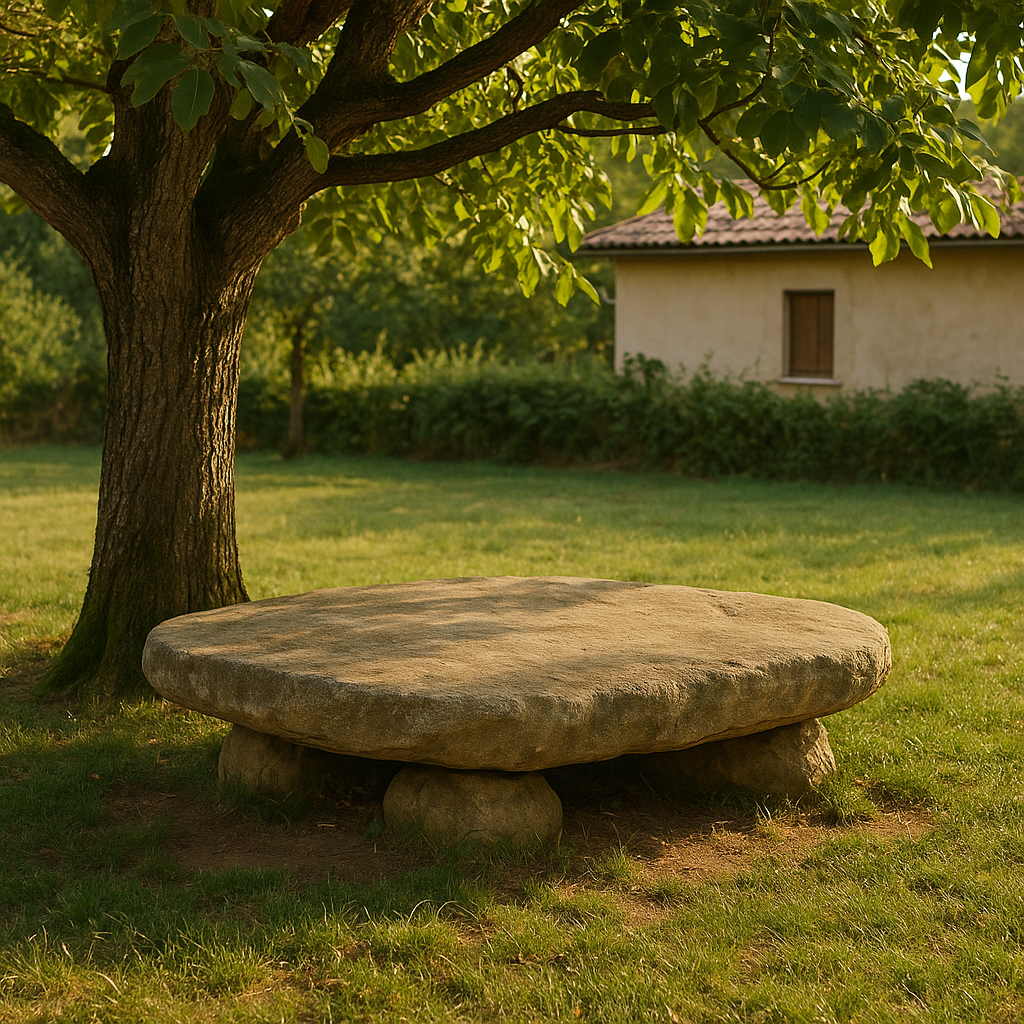
In the garden, right under the old walnut tree, there was a wide, flat stone. Giovanni loved it.
One day, a long time ago, his father had told him its story. He had said that the stone had been there long before they built their house, probably for centuries, and that, in a way, it had become part of their family.
“You see, Gio’, this stone knows us better than anyone else.”
That stone had done a bit of everything: sometimes it was used to hold tools, other times it became an improvised summer dinner table, under the stars.
It was a simple thing, but to him, it held a treasure of memories. Now, it was all that remained.
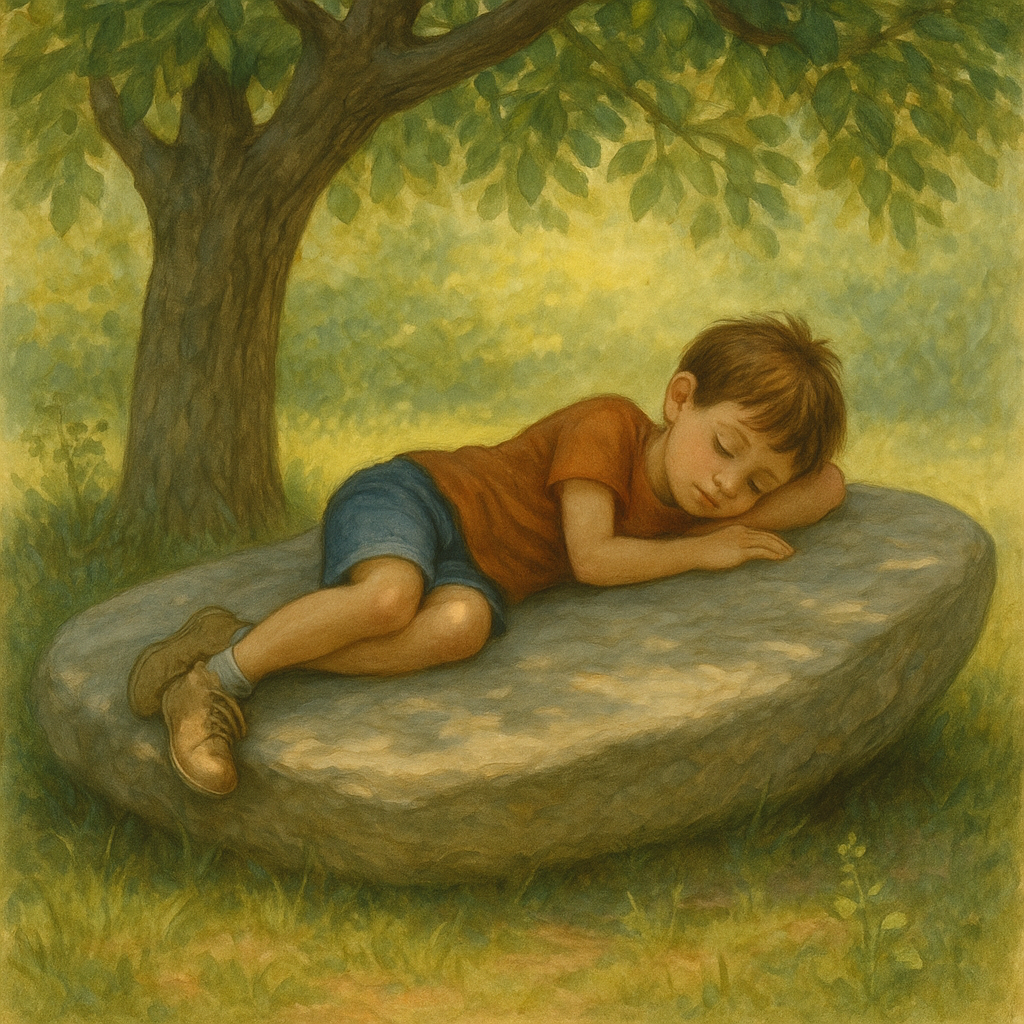
Since his father was gone, Giovanni had started sitting on that stone every day after finishing his homework. He did it without thinking too much. It was as if his body already knew where it had to go. Like meeting a secret friend. And every time he sat there, the questions came back.
“But where did you go, dad? Why aren’t you here with me?” “Did you stop loving me?” “Did I do something wrong?”
The stone, of course, never answered. But it seemed to listen. It seemed to watch him, without ever judging.
One day, Giovanni whispered: “At least you don’t say anything. The answers others give me… are just lies. I can feel it.”
He understood that those answers avoided the question. The adults tried to deny what to him was obvious.
The absence hurt even more when he heard his classmates talk about their dads.
Maybe that’s why he had started talking to the stone. Because the stone didn’t lie. It stayed. That was enough.
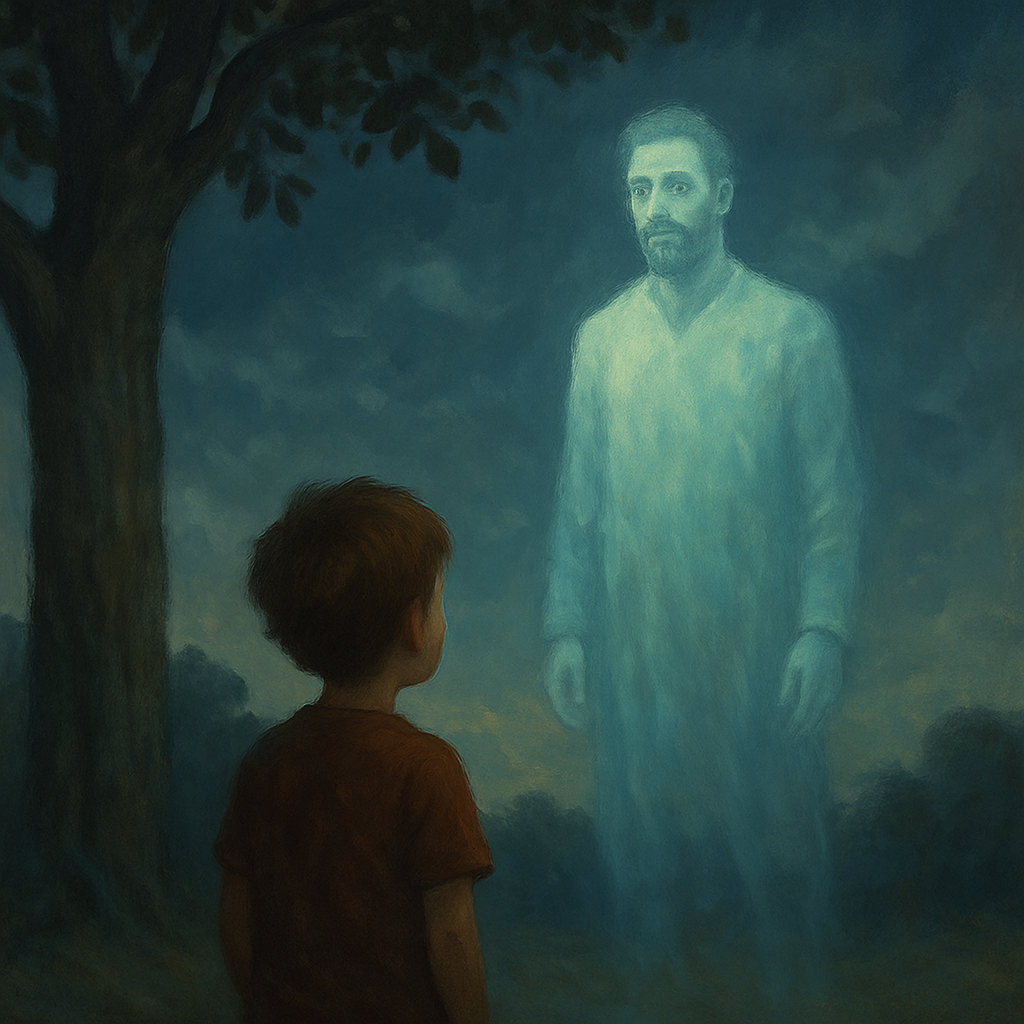
That night, Giovanni had a very strange dream. He was in the garden, but the stone was gone. Then he turned around. And he saw him.
A man, still, standing in the grass. His face was full of light.
“You’re back! I knew you wouldn’t leave me!” Giovanni shouted. He ran to hug him.
And in that instant, he saw something in the man’s eyes. A deep sweetness. A light that spoke of forgiveness. Or maybe tenderness.
He understood everything. He understood what the adults had always tried to hide. And what he, in a dream, had seen in a few seconds: his father had never abandoned him.
But just as he was about to touch him… he woke up.
He looked out the window. The stone was still there. Motionless. But inside him, something had changed.
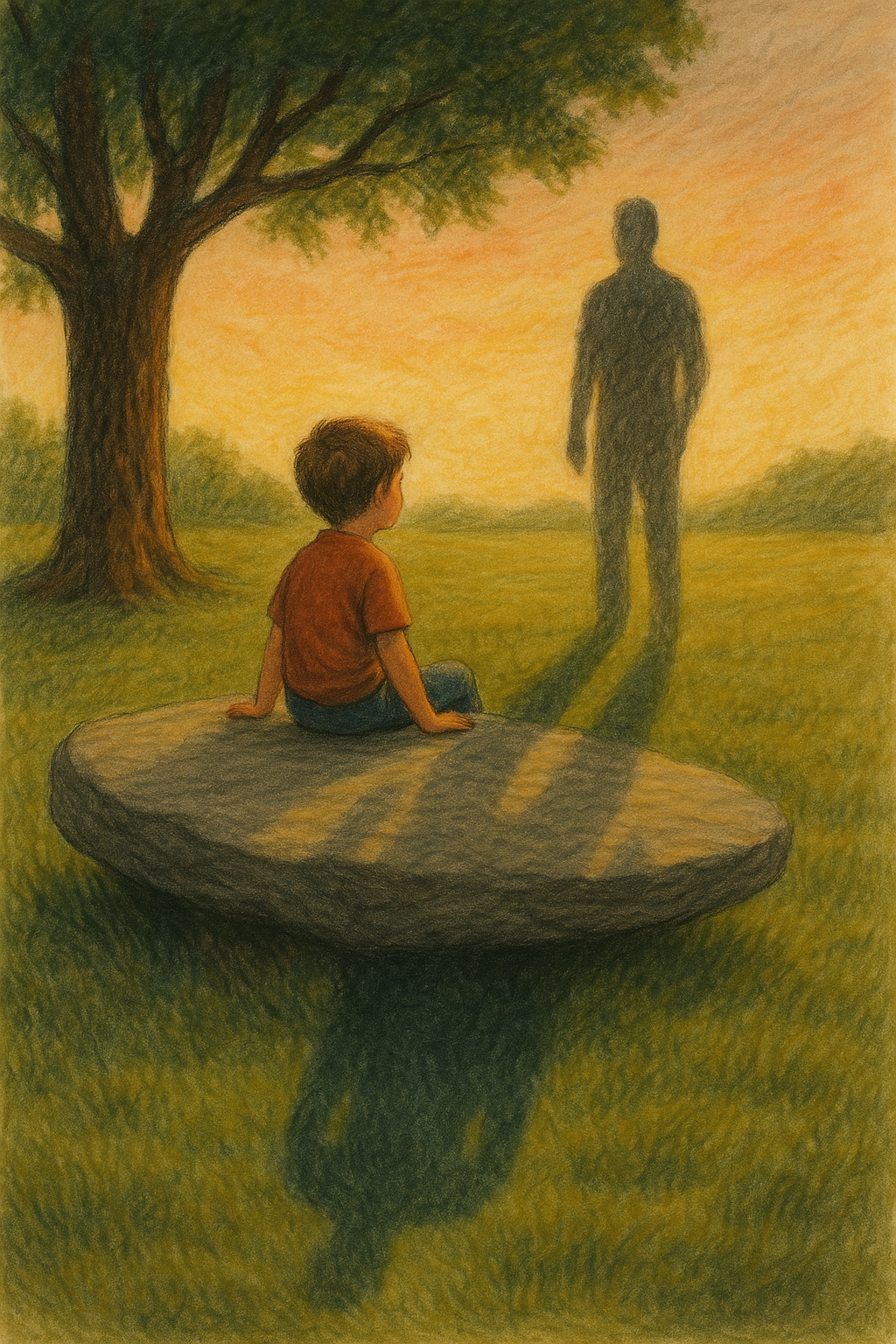
Giovanni had managed to do something extraordinary. He had taken the pain, the longing, the unanswered question, and transformed it.
He had transformed a stone, an inanimate object, into the most alive and truest thing he had: the presence of his father.
A need so deep that it turned absence into presence, silence into listening, stone into refuge.
In the soul of the child, the human soul’s ability had blossomed — to transfigure feelings and emotions into something tangible, something present.
This is the power of the human soul: not to adapt, but to transfigure. Not to erase pain, but to give it a new form. A form that consoles, that accompanies, that continues to love in silence.
And so, every time Giovanni sat on that stone, he was no longer alone. And maybe, deep down, he never had been.